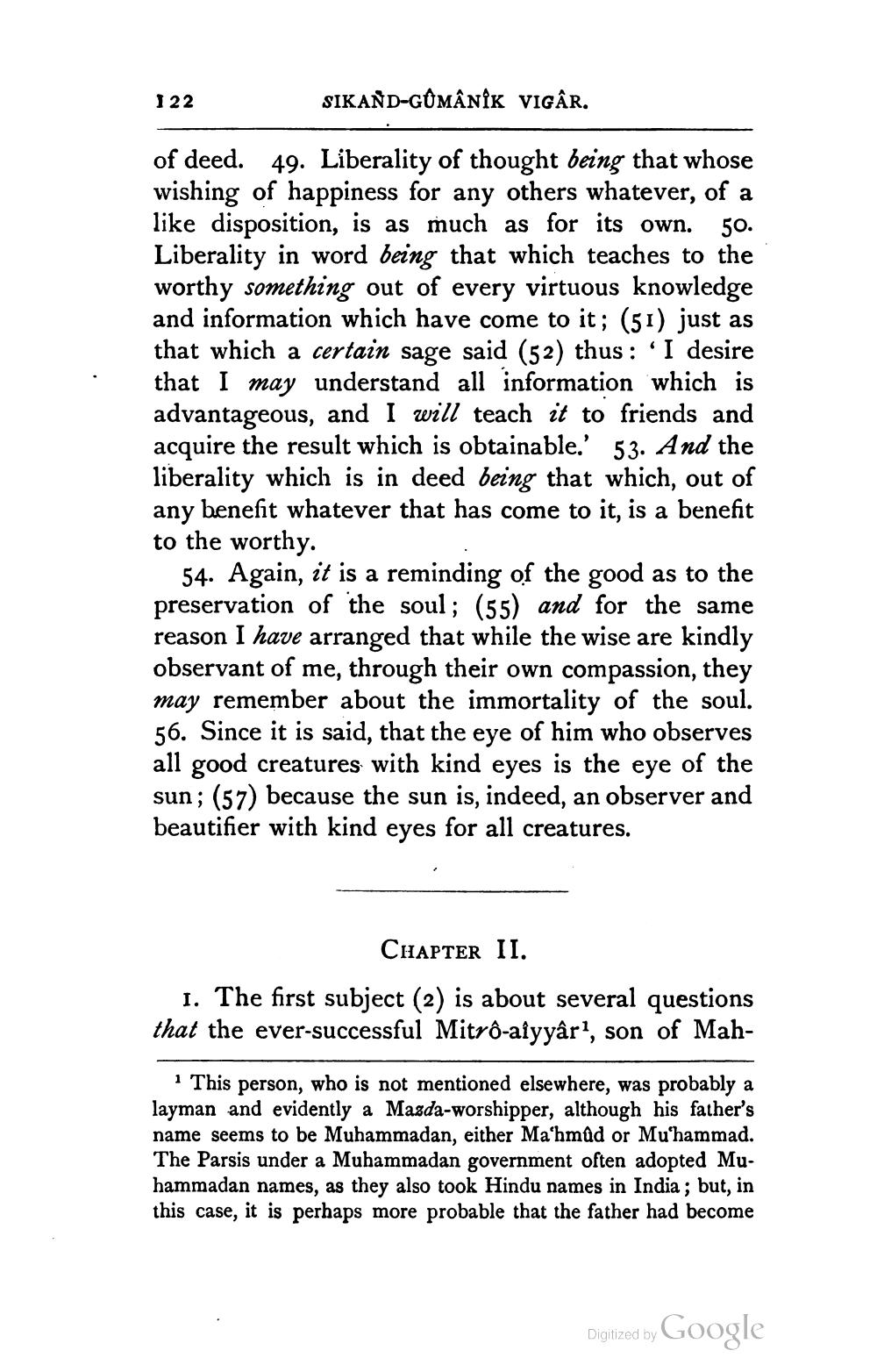________________
1 22
SIKAND-GÛMÂNÍK VIGÂR.
of deed. 49. Liberality of thought being that whose wishing of happiness for any others whatever, of a like disposition, is as much as for its own. 50. Liberality in word being that which teaches to the worthy something out of every virtuous knowledge and information which have come to it; (51) just as that which a certain sage said (52) thus: 'I desire that I may understand all information which is advantageous, and I will teach it to friends and acquire the result which is obtainable.' 53. And the liberality which is in deed being that which, out of any benefit whatever that has come to it, is a benefit to the worthy.
54. Again, it is a reminding of the good as to the preservation of the soul; (55) and for the same reason I have arranged that while the wise are kindly observant of me, through their own compassion, they may remember about the immortality of the soul. 56. Since it is said, that the eye of him who observes all good creatures with kind eyes is the eye of the sun; (57) because the sun is, indeed, an observer and beautifier with kind eyes for all creatures.
CHAPTER II. 1. The first subject (2) is about several questions that the ever-successful Mitrô-aiyyâr, son of Mah
This person, who is not mentioned elsewhere, was probably a layman and evidently a Mazda-worshipper, although his father's name seems to be Muhammadan, either Ma'hmûd or Mu'hammad. The Parsis under a Muhammadan government often adopted Muhammadan names, as they also took Hindu names in India ; but, in this case, it is perhaps more probable that the father had become
Digitized by Google




